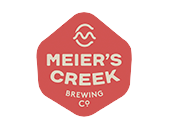It might not be the reason you got into the business, but brewery accounting is an essential component of managing your brewery. When it comes to your financials, you have to get the details right to track revenues and expenses, maximize your margins, and submit accurate reports.
As the global beer market continues to grow, breweries that get this step of the process right can gain a crucial advantage. Being able to streamline your accounting and financial reporting means you’re able to focus more specifically on the pieces that make your beer so great.
As an added advantage, greater accountability in your business finances also helps you make sound decisions when it comes to purchasing pricing, inventory management, and more.
To get there, of course, you might need to do some work. Accounting matters for every part of the brewery industry, from production and brewing to inventory and supply chain management, point-of-sale integrations, and more. This guide will help you build an accounting structure you can rely on.
The Basics of Brewery Accounting
At its core, brewery accounting simply describes everything related to managing the finances of your business. Of course, as anyone who has ever run a brewery knows, that seemingly simple definition is actually quite complex once you dig into exactly what managing the finances of your business entails.
You’ll need to record all of your transactions, including inventory and equipment purchases, as well as your sales. You need to regularly reconcile accounts to make sure that your estimated expenses track with your actual expenses. And of course, you need to create reports (like the TTB’s Brewer’s Report of Operations) that show your finances to all relevant regulatory authorities.
Brewery accounting, in other words, is not just a general term describing some loosely connected financial activities. At its best, it’s the description of a comprehensive system that combines all of your financial activities, from expenses and incomes to cash flow, so that you can more easily make decisions related to the operations and future of your brewery.
How Accounting Can Measure Your Financial Performance
Unless you are new to owning and managing a business, you likely have at least a passing familiarity with the financial statements that help you track your financials at all times. Generally speaking, you’ll likely need to keep track of three basic financial statements as part of your daily, monthly, and annual operations:
- The income statement outlines your sales, operating expenses, and gross margin (the difference between the two). It covers a pre-defined period of time like a month, quarter, or year.
- The statement of cash flows measures how much cash moves through your brewery. That includes sales, vendor and distributor payments and more. Think of it as an extension that goes into the details behind your income statement.
- The balance sheet lists all of your assets and liabilities. Assets consist of anything in your brewery that has a tangible value, while liabilities are anything (like a lease or loan) that costs money. The balance sheet is a point-in-time financial statement.
Brewers aren’t accountants. But at the same time, committing to keeping accurate records through statements like these helps you become increasingly familiar with your brewery’s financial health, ultimately, allowing you to run a more sustainable and fiscally responsible business.
The Need for Accurate Accounting in Budgeting Processes
Every business needs a regular budgeting flow. Put simply, you need to know how much money you have available for ingredient and equipment purchases as well as daily operations. Activities like demand forecasting can help you understand the money you have available but ultimately, you can only budget accurately when you get your accounting processes right.
Generally speaking, it helps to keep track of a few core accounting KPIs that can help with your budgeting process:
- Cost per BBL—Keep track of how much, on average, every barrel of beer you produce will cost. That includes both labor costs and ingredient costs to get a full picture of the money you put into production for your brewery.
- Gross Margin—Your gross margin is the difference between the price you pay for the goods you produce and the revenue you make on them. Keeping track of it over time helps you understand how much money you have available to pay indirect costs like equipment leases or maintenance and, ultimately, how much profit you can make.
- Current Ratio—One of the most high-level accounting KPIs, your current ratio measures your ability to pay your bills. You simply divide your current assets by your current liabilities to make sure your business as a whole is liquid and profitable enough to sustain over time.
Related: Three Brewery Accounting Best Practices
Keep track of KPIs like these regularly. That way, you can maintain an overview of your brewery’s financial health, while also being able to more accurately budget your future expenses and price your future products in the process.
Financial Reports: More Than Just an Accounting Requirement
Of course, accounting is about more than just a few core KPIs or internal balance sheets. It’s also a necessary step to ensure that your brewery remains in compliance with state and federal regulations. But here’s a secret: from the right perspective, those financial reports can actually create a significant internal benefit, as well.
Let’s begin with the requirement part of reporting. Your brewery will likely need to submit two types of reports on a regular basis:
- The above-mentioned Brewer’s Report of Operations, a federal requirement that tracks all of the alcohol you’ve produced, sold, and received in a given timeframe.
- State-level reports for any state in which you do business, typically regulated by the state’s Department of Revenue.
You’ll also be responsible for excise taxes for all of your revenue from the alcohol you produce and sell, which will require additional reporting to your associated tax authorities.
But here’s the thing: these reports can be immensely helpful to your internal accounting efforts, as well. They require you to standardize your financial systems, while also providing you with helpful numbers you can use to manage and optimize your business operations.
Take the Brewer’s Report of Operations as an example. It requires you to track exactly how much alcohol you’ve sold, and the revenue you’ve gained from that alcohol, while also keeping inventory figures in mind. Internally, that information can be helpful to estimate future revenues and costs in your budgeting process.
Integrating Your Accounting Efforts Across the Brewery Business
So far, we’ve discussed brewery accounting as a largely isolated financial exercise. But any brewer knows that ultimately, the input into those processes and statements has to come from every part of the business. Only accounting processes that account for those integrations can ultimately result in accurate and streamlined reporting.
Related: Why You Need to Move Beyond a Brewery Accounting Spreadsheet and How to Do It
Consider your POS systems, for example. The data collected will ultimately play into your statement of cash flows, income statement, and external reports like the Brewer’s Report of Operations. That might have to happen manually, or you might be able to integrate your POS system with your brewery accounting software.
The same is true for your inventory management efforts. Being able to directly connect the ordering process to your financial reporting allows you to keep a better overview of your regular costs. That, in turn, allows you to better forecast future costs as directly connected to the inventory you’ll need.
These types of integrations can play a significant role in helping you streamline your financial accounting and operations. Because you no longer need to manually pull and push cost and revenue information, you can more fully focus on the reason you entered the industry, to begin with—brewing delicious, consistent, and popular beer.
How the Right Software Can Help Optimize Your Accounting
Make no mistake—no matter how much you integrate it, accounting remains a complex process that will likely require a significant amount of attention and work every month. But at the same time, the right software solution can go a long way toward streamlining these processes and ultimately making brewery accounting less of a headache, and more of a strategic advantage.
That process begins with the above-mentioned integrations. More importantly, an all-in-one integrated software solution can hook into every part of your business, becoming the single source of truth that all of your financial data and reporting can be based on. That allows you to not only save time but become more confident in the numbers you report on and rely on for your forecasting to build a more successful business.As the market leader in craft brewery software, Ekos shines through its ability to offer comprehensive reporting that ranges from inventory to accounting. It connects the entire brewery ecosystem, providing unprecedented data insights that build efficiencies and optimize operations. Book your demo today to learn how Ekos can help your brewery business thrive.





